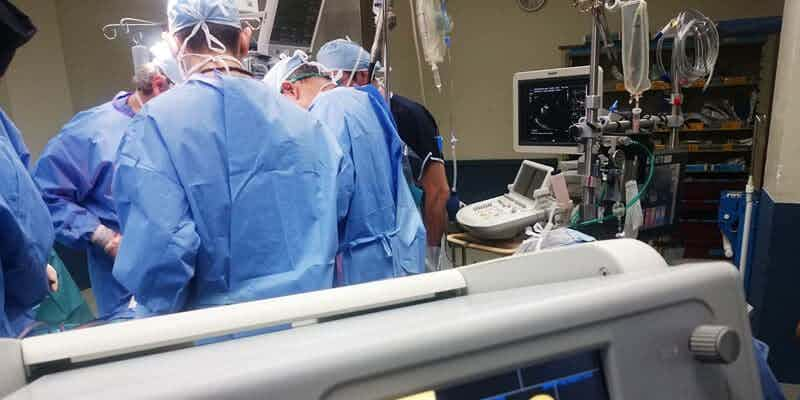
Court: Superior Court of Delaware, New Castle Jurisdiction – State Daubert Factor Involved – Qualification Case Stage – Pre-Trial Ruling Type – Summary Judgment Case Name – Miller v. Christiana Care Health, Servs. Citation– 2018 Del. Super. LEXIS 419
Lois Card was admitted to the Emergency Room at Christiana Care Health Services’ Wilmington Hospital after experiencing severe chest pain and difficulty breathing. After evaluation by an emergency physician, an EKG showed Card had an irregular heart rate. A chest x-ray showed mild vascular congestion, and a cardiac enzyme test showed a negative troponin reading. At noon that day, Card’s care was transferred to Dr. Dhamdhere at IPC Healthcare, where Card was diagnosed with chest discomfort and atrial fibrillation. The same day, at approximately 5:00 p.m., Card came under the care of Dr. Kathryn Groner, who determined Card needed to be transferred to the hospital’s heart unit. Before Card could be transferred, however, she became unresponsive. Card’s condition deteriorated, and she was pronounced dead later that evening.
The plaintiffs, Card’s three children, brought a medical malpractice action against the hospital and its staff alleging that the treating emergency physicians failed to identify and diagnose Card’s aortic dissection. In support of these allegations, the plaintiffs offered the expert witness testimony of Dr. Thomas Berger, a former thoracic surgeon, and Dr. Donald Marks, a hospitalist. The hospital filed a motion for partial summary judgment as to all direct negligence claims against its emergency medicine staff and argued that the plaintiffs’ experts were not qualified to testify to the standard of care as they were not emergency medicine experts.
The plaintiffs countered by arguing that the primary issue, in this case, involved the failure to diagnose an aortic dissection — a field that intersected multiple medical specialties. Since their experts were familiar with diagnosing and treating aortic dissections, the plaintiffs argued, they were qualified to testify to the standard of care applicable to making that diagnosis, whether the setting of care was an emergency room, urgent care, or primary care office.
Relying on Hurley v. Medical Center of Delaware 1988 Del. Super. LEXIS 430, the court noted that “[a]lthough the general rule under Section 6854 is that a physician in one field of medicine is not competent to testify about the standard of care in a different field of medicine, there are at least two exceptions to that rule, namely where: (1) “the methods of treating a particular ailment are generally the same in either school,” and (2) “a physician, although trained in one school[,] steps out of the practice of his own school and attempts to treat a patient in a manner practiced by another school.”
The plaintiffs argued that even though Dr. Berger and Dr. Marks were not emergency medicine expert witnesses, they were competent to opine in this case because the standard of care for identifying and diagnosing aortic dissection is the same for any doctor treating a patient with those symptoms, regardless of the doctor’s specialty.
The defendants, on the other hand, argued that emergency medicine is a specialty and the experts admitted that they did not have any experience in that specialty. Reliance was placed by the defendants on Werner v. Nanticoke Memorial Hospital, Inc., where it was held that emergency medicine involved a standard of care distinct from other fields of me dicine, and that an expert witness who sought to testify to that standard must demonstrate familiarity with emergency medicine.
However, the court agreed with the plaintiffs in this case and held that the standard of care applicable to identifying and diagnosing aortic dissection was the same across emergency medicine, primary care, and cardiac fields of medicine. The court allowed the defense to present its own experts to testify that a different standard of care applies in this case, but held that it did not warrant summary judgment at this stage, especially in light of the qualified expert witness testimony from the plaintiffs’ experts.
About the author


